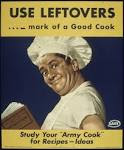 |
| wikimedia.org |
Deacon Tom writes ©
"Use Leftovers"
In
today’s first reading the Prophet Elisha is given twenty loaves of barley bread.
Instead of keeping it for himself, he tells his benefactor to “Give it to the people to eat”. Afraid
there wouldn’t be enough for everyone, the man reluctantly did as he was told. Surprisingly,
we discover as the story ends, “there was
some left over”.
Jesus
finds himself in a similar situation surrounded by a hungry crowd with few
resources… five barley loaves and a couple of fish. Surprisingly, he too had
ample food to feed everyone and needed twelve wicker baskets for the
“leftovers”. There is a common
theme in both readings… Can you guess it?
In
the economy of the kingdom Jesus reveals to his followers there is always a
sufficiency, there is always enough to go around and fill everyone’s needs. Bread…the
basic food staple for most of human history was essential for daily life. Without
it, people suffered and died. Elisha and Jesus were extraordinary in their
ability to supply bread to satisfy people’s hunger…and still have leftovers.
Chapter
6 of the Gospel of St. John is the story of the multiplication of the loaves
and the fishes. In many ways this event sets the stage for Jesus making the
connection between the bread as a staple for physical life and his body that will
be offered up on the Cross in order to nourish our spiritual life. The
Eucharistic Banquet feeds the deepest hunger we experience in life… our hunger
to be intimately connected with God and to be satisfied completely with the
graces that flow from that intimacy.
Our
readings tell us something very important from the bread, the nourishment we
derive from our deeply rooted and personal experience of God in the Eucharist…
there is always an overabundance of God’s supply not only to nourish us, but to
also nourish others.
Now
in our day and age, when we have more than enough for our needs, when we are
done with supper and there is more food on the stove, we break out the
Tupperware and pack the leftovers into the frig for when we are hungry tomorrow.
That’s not how God works. That’s not how divine supply works. Remember the
story of the Israelites wandering in the desert and, when the people complained
that they were hungry, God provided them with bread to eat? The bread was called Manna and the
people were instructed to gather only what they needed for that day. No more,
no less! Of course, some people didn’t listen, perhaps not trusting that God
would deliver and provided for them on the next day. Here is what happened when
that happened… “But they did not listen
to Moses, and some kept a part of it over until morning, and it became wormy and
stank”
Every
time we receive the Eucharist, God provides us with the nourishment we need to
carry out his plan, which as Jesus taught his disciples, is to go out into the
world and feed others. And, the way we do this is by the way we act, by the way
we love and forgive one another, by the way we envision this world and the way
we provide solutions to the many problems we face. There are no leftovers in God’s plan. Everything, everyone
has a purpose and a role to play in advancing God’s Kingdom of love, mercy, and
forgiveness.
Enjoy
the day!
Deacon
Tom
Image from common.wikimedia.org
No comments:
Post a Comment